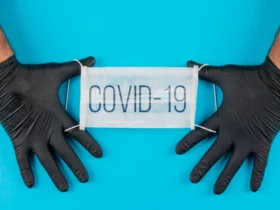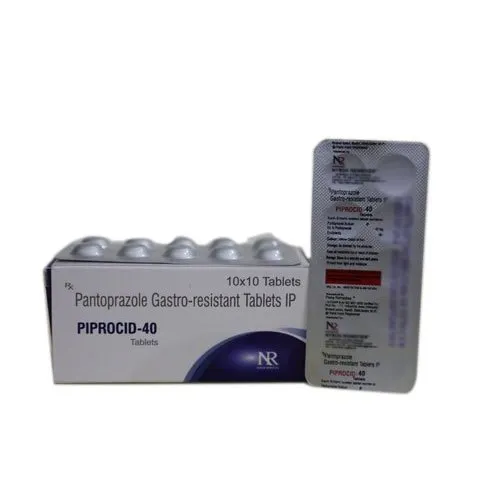Procid GR 40 is a medication containing pantoprazole, a proton pump inhibitor (PPI) that reduces the amount of acid produced in the stomach. It works by blocking the enzyme in the stomach wall that produces acid, thereby alleviating symptoms of acid reflux and related conditions.
What is Procid GR 40 and how does it work?
Procid GR 40 is a medication that contains pantoprazole, a type of drug known as a proton pump inhibitor (PPI). It’s designed to reduce the production of acid in the stomach. Pantoprazole works by inhibiting the action of the proton pump in the stomach’s cells, which is responsible for producing gastric acid. By blocking this pump, Procid GR 40 helps decrease the amount of acid produced in the stomach, which can alleviate symptoms associated with conditions like acid reflux, GERD (gastroesophageal reflux disease), and stomach ulcers.
What are the uses and indications of Procid GR 40 in UAE?
In the UAE, Procid GR 40, containing pantoprazole, is commonly prescribed to address various gastrointestinal conditions related to excessive stomach acid production. Its primary uses and indications include:
- Gastroesophageal Reflux Disease (GERD): Procid GR 40 is often recommended for individuals experiencing GERD, a chronic condition where stomach acid flows back into the esophagus, causing heartburn, regurgitation, and discomfort.
- Peptic Ulcers: This medication is effective in treating ulcers that develop in the stomach (gastric ulcers) or the upper part of the small intestine (duodenal ulcers). It helps in healing these ulcers and preventing their recurrence.
- Erosive Esophagitis: In cases where the lining of the esophagus is damaged due to prolonged exposure to stomach acid, Procid GR 40 aids in healing and reducing inflammation.
- Zollinger-Ellison Syndrome: For individuals diagnosed with this rare condition characterized by excessive production of stomach acid, Procid GR 40 can help manage and reduce acid secretion.
- Preventive Use: It’s also prescribed in certain situations to prevent gastric ulcers induced by non-steroidal anti-inflammatory drugs (NSAIDs) in patients at risk.
Procid GR 40’s effectiveness in reducing gastric acid production makes it a valuable medication for managing and treating various gastrointestinal disorders prevalent in the UAE population. However, its usage should be in accordance with a healthcare provider’s guidance to ensure proper dosage and treatment duration for each specific condition.
How should Procid GR 40 be taken?
Procid GR 40, containing pantoprazole, should be taken according to your healthcare provider’s guidance for optimal effectiveness and safety. Here’s a general guide on its usage:
- Dosage and Administration:
- Oral Intake: Swallow the tablet whole with a glass of water. Avoid crushing or chewing the tablet, as it’s designed for gradual release.
- Timing: Take Procid GR 40 usually before a meal, typically in the morning. Follow your doctor’s instructions regarding the specific timing for your dosage.
- Consistency: Maintain a consistent schedule for taking Procid GR 40. Try to take it at the same time each day to ensure consistent blood levels.
- Duration: Continue taking the medication for the prescribed duration, even if symptoms improve. Stopping abruptly may lead to a return of symptoms.
- Adjustments: If you have difficulty swallowing the tablet whole, consult your doctor or pharmacist for possible alternatives, such as opening the capsule and mixing the contents with water or specific foods as advised.
- Additional Considerations:
- Medical Advice: Always follow your healthcare provider’s recommendations regarding dosage adjustments or any changes in the treatment plan.
- Interactions: Inform your doctor about all other medications, supplements, or herbal remedies you are taking, as Procid GR 40 may interact with certain drugs.
- Monitoring: Periodic check-ups may be necessary to monitor your response to the medication and assess any potential side effects.
Never alter the dosage or frequency of Procid GR 40 without consulting your healthcare provider. It’s essential to adhere to the prescribed instructions to derive the maximum benefit from the medication while minimizing the risk of side effects or complications.
When to Use Procid GR 40
Procid GR 40, containing pantoprazole, is typically used in specific situations and conditions related to stomach acid production. Here’s when it’s commonly recommended:
- Symptoms and Conditions:
- Acid Reflux Symptoms: When experiencing symptoms like heartburn, regurgitation, or a sour taste in the mouth due to acid reflux, Procid GR 40 may be used to alleviate discomfort.
- Gastroesophageal Reflux Disease (GERD): For individuals diagnosed with GERD, which involves frequent and persistent acid reflux, Procid GR 40 can be part of a treatment plan to manage symptoms and prevent complications.
- Ulcers: In cases of stomach or duodenal ulcers, Procid GR 40 is used to aid in healing and prevent the recurrence of ulcers.
- Preventive Measures: Sometimes, Procid GR 40 might be prescribed as a preventive measure for individuals at risk of developing ulcers due to prolonged use of certain medications like NSAIDs (non-steroidal anti-inflammatory drugs).
- Usage Instructions:
- As Directed: Use Procid GR 40 as prescribed by your healthcare provider, following the recommended dosage and duration of treatment.
- Regular Use: It’s often taken on a regular basis, usually before meals, to effectively reduce stomach acid production and manage associated symptoms.
- Long-Term Management: In chronic conditions like GERD or recurring ulcers, Procid GR 40 might be a part of a long-term management plan to control symptoms and prevent complications.
Always consult with a healthcare professional to determine the specific circumstances and conditions that warrant the use of Procid GR 40. The timing and duration of usage will be tailored to individual needs based on the diagnosis and severity of the condition.
Side effects associated with Procid GR 40
Procid GR 40, containing pantoprazole, is generally well-tolerated, but like any medication, it may have potential side effects. Here are some common side effects associated with its usage:
- Common Side Effects:
- Headache: Mild to moderate headaches might occur initially after starting ProcidGR 40 but often subside with continued use.
- Digestive Issues: These can include nausea, abdominal pain, or diarrhea, although they are usually temporary and tend to improve over time.
- Changes in Taste: Some individuals might experience altered taste perceptions or a metallic taste in the mouth, which typically resolves without intervention.
- Less Common Side Effects:
- Dizziness: Some individuals might experience dizziness or light-headedness, especially during the initial phase of treatment.
- Skin Reactions: Rarely, allergic skin reactions like rash or itching may occur, which should be reported to a healthcare professional.
- Important Notes:
- Severity and Duration: Most side effects are mild and temporary, disappearing as your body adjusts to the medication. If any side effects persist or worsen, it’s crucial to inform your doctor.
- Individual Variation: Not everyone experiences these side effects, and some individuals may not encounter any adverse reactions while using Procid GR40.
- Seek Medical Attention: Contact your healthcare provider if you experience severe or persistent side effects, allergic reactions, or any unusual symptoms while taking Procid GR40.
It’s essential to weigh the potential side effects against the benefits of the medication. Your healthcare provider can provide guidance on managing or mitigating side effects while ensuring effective treatment for your condition.
Read more : Understanding Rowachol Side Effects and Uses
FAQs about Procid GR 40 in UAE
Can Procid GR 40 be taken with other medications?
Procid GR 40, containing pantoprazole, can interact with various medications. It’s essential to inform your healthcare provider about all medications, including prescription drugs, over-the-counter medicines, supplements, and herbal remedies you’re taking.
Some medications that may interact with Procid GR40 include:
- Anticoagulants: Such as warfarin or clopidogrel, as the combination might increase the risk of bleeding.
- Antifungal Agents: Some antifungal medications might interact with pantoprazole, affecting its absorption.
- Anti-HIV Drugs: Certain medications used to treat HIV might interact with pantoprazole, altering their effectiveness.
- Anti-seizure Medications: Drugs like phenytoin or valproic acid might have reduced absorption when taken alongside pantoprazole.
- Other Acid-Reducing Medications: Using Procid GR40 with other acid reducers might not provide added benefit and could potentially increase the risk of side effects.
Your healthcare provider can assess potential interactions and may adjust dosages or recommend alternative medications based on your specific situation. Always consult with your doctor or pharmacist before starting or stopping any medications while taking Procid GR40 to prevent potential interactions or adverse effects.
Can Procid GR 40 be used during pregnancy or while breastfeeding?
The use of Procid GR 40, which contains pantoprazole, during pregnancy or while breastfeeding should be discussed thoroughly with a healthcare professional.
- Pregnancy:
- Limited Data: There’s limited information regarding the safety of pantoprazole specifically during pregnancy.
- Risk Evaluation: Your doctor will assess the potential risks and benefits before recommending its use during pregnancy.
- Consideration: Pantoprazole might be considered if the potential benefits outweigh the risks for managing severe reflux or other gastrointestinal conditions during pregnancy.
- Breastfeeding:
- Excretion in Breast Milk: Pantoprazole does pass into breast milk in small amounts.
- Consultation Needed: If you’re breastfeeding or planning to breastfeed, discuss with your healthcare provider to weigh the benefits against potential risks before using Procid GR40.
- Decision-making: Your doctor will help evaluate the necessity of treatment and consider alternatives that might be safer during breastfeeding.
In both cases, it’s vital to consult your healthcare provider for personalized advice regarding the use of Procid GR40 during pregnancy or while breastfeeding to ensure the safety of both you and your baby.
Precautions when using Procid GR 40:
When using Procid GR40, containing pantoprazole, certain precautions can help ensure safe and effective treatment. Here are key precautions to consider:
- Medical History and Consultation:
- Inform Your Doctor: Disclose your complete medical history, including any allergies, existing medical conditions (especially liver disease), and all medications you’re currently taking, including supplements and herbal remedies.
- Regular Check-ups: Follow-up appointments with your healthcare provider are important to monitor your response to the medication and evaluate any potential side effects or complications.
- Long-Term Use:
- Duration of Treatment: Use Procid GR40 for the prescribed duration. Avoid prolonged use without medical supervision, as it may increase the risk of certain side effects like fractures or vitamin B12 deficiency.
- Bone Health: Long-term use of proton pump inhibitors like pantoprazole might affect bone health. Your doctor may recommend calcium or vitamin D supplements or lifestyle changes to support bone health.
- Lifestyle and Dietary Considerations:
- Dietary Changes: Discuss any dietary modifications or restrictions with your healthcare provider, especially if related to the management of your condition.
- Alcohol Consumption: Limit or avoid alcohol intake while using Procid GR40, as alcohol can exacerbate certain gastrointestinal conditions and may interfere with the medication’s effectiveness.
- Monitoring and Awareness:
- Monitoring: Be aware of any unusual symptoms or side effects and promptly report them to your healthcare provider. Regular monitoring helps manage any emerging issues effectively.
- Pregnancy and Breastfeeding: Consult your doctor before using Procid GR40 if you are pregnant, planning pregnancy, or breastfeeding, as the risks and benefits need careful evaluation.
Adhering to these precautions and guidelines while using Procid GR 40 can help optimize its effectiveness while minimizing the risk of potential side effects or complications. Always consult your healthcare provider for personalized advice tailored to your specific health needs.
What should I do if I miss a dose of Procid GR 40?
If you miss a dose of Procid GR40 (pantoprazole), here’s what you should generally do:
- If you remember within a few hours:
- Take it as soon as possible: If it’s within a few hours of the missed dose, take the missed tablet immediately.
- Resume regular schedule: Continue with your usual dosing schedule for subsequent doses.
- If it’s closer to the next dose:
- Skip the missed dose: If it’s almost time for your next scheduled dose, skip the missed one.
- Don’t double up: Do not double the dose to compensate for the missed one. Doubling doses can increase the risk of side effects without providing additional benefits.
- Additional Steps:
- Consult your healthcare provider: If you’re unsure about what to do, or if you’ve missed multiple doses, contact your doctor or pharmacist for guidance.
- Maintain consistency: Try to maintain a consistent schedule for taking Procid GR40 to ensure its effectiveness in managing your condition.
It’s important to follow your doctor’s instructions regarding dosage and timing for Procid GR40. Consistency in taking the medication helps maintain steady levels in your body for optimal treatment effectiveness. If you miss a dose, taking it as soon as possible without doubling up is generally advised, but individual situations might warrant specific guidance from your healthcare provider.














Leave a Reply